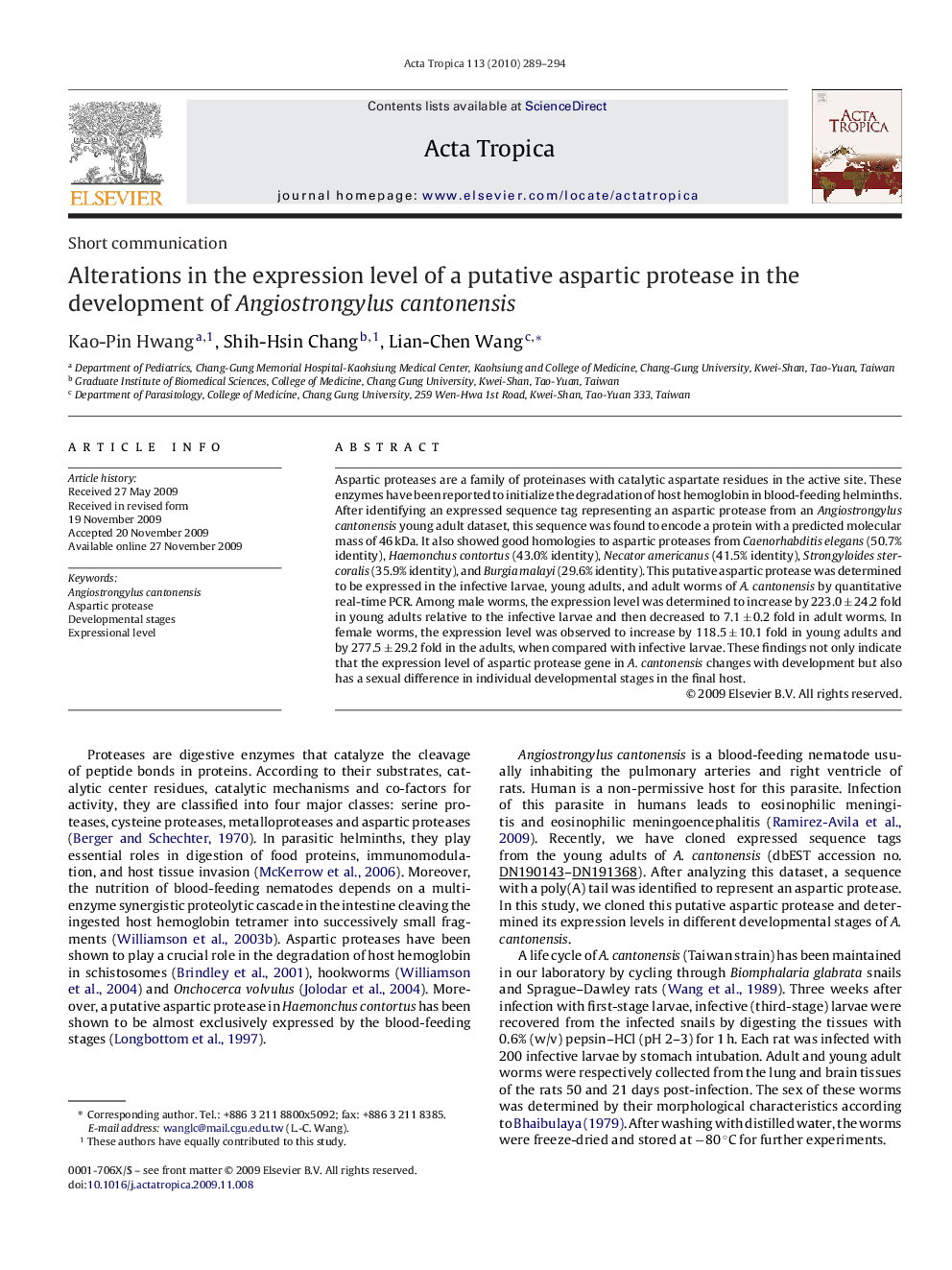| Article ID | Journal | Published Year | Pages | File Type |
|---|---|---|---|---|
| 3394204 | Acta Tropica | 2010 | 6 Pages |
Aspartic proteases are a family of proteinases with catalytic aspartate residues in the active site. These enzymes have been reported to initialize the degradation of host hemoglobin in blood-feeding helminths. After identifying an expressed sequence tag representing an aspartic protease from an Angiostrongylus cantonensis young adult dataset, this sequence was found to encode a protein with a predicted molecular mass of 46 kDa. It also showed good homologies to aspartic proteases from Caenorhabditis elegans (50.7% identity), Haemonchus contortus (43.0% identity), Necator americanus (41.5% identity), Strongyloides stercoralis (35.9% identity), and Burgia malayi (29.6% identity). This putative aspartic protease was determined to be expressed in the infective larvae, young adults, and adult worms of A. cantonensis by quantitative real-time PCR. Among male worms, the expression level was determined to increase by 223.0 ± 24.2 fold in young adults relative to the infective larvae and then decreased to 7.1 ± 0.2 fold in adult worms. In female worms, the expression level was observed to increase by 118.5 ± 10.1 fold in young adults and by 277.5 ± 29.2 fold in the adults, when compared with infective larvae. These findings not only indicate that the expression level of aspartic protease gene in A. cantonensis changes with development but also has a sexual difference in individual developmental stages in the final host.
